Emer Kenny, who adapted the series, had a chat with press representatives speaking all-things Pirie and why she wouldn't have been suitable for the role, herself.
You might find one of her inspirations for Karen Pirie a bit surprising.
Here's what Emer had to say.
How did you start working on the screen adaptation of Val McDermid’s books?
I was working with World Productions, writing an episode of Save Me Too, and they asked me if I'd be interested in reading the Karen Pirie books, because they had the rights to them. The first book was written back in 2004 and the TV idea had been around the block a bit with different writers, channels and production companies – nobody had ever quite worked out what the right approach to adapting the series would be. It's because the first book has quite a few challenges, in that Karen is the lead character of the series, but she doesn't come in until something like page 400! Plus, it's written in two blocks, so it’s set in both the 1970s and then in 2004. So, to make it a series, how do you thread Karen through the whole show? You have to overlap the timelines, and it wasn't immediately obvious how to do that, I really had to think about it.
But what essentially drew me to the project was this character, Karen. She's a young woman in a male-dominated environment, who is really underestimated, and I think I related to that. I've felt like that at times in my own job, so I wanted to channel my personal experiences and frustrations into Karen. She has a daunting prospect ahead of her, in that this is the first time she has an opportunity to work on a big crime that nobody thinks is possible to solve, and I feel like I also had quite a daunting prospect ahead of me, trying to crack these books and bring them to the screen for the first time! I had never written a whole series before, so I really related to her in that way, and we're about the same age too. If you can relate to the material, then you'll bring something of yourself to it and your authentic approach should mean the audience will relate to it too. The show became quite personal for me in the end.
It was really tricky technically. I had to make quite a few changes to the story, because when you write a book you can be inside the character's head, whereas when you're writing a TV series you have to externalise everything. People who are fans of the books might be surprised by some of the alterations, and I think one of the biggest changes for me was that the Karen of the books was in her late 20s in 2004 and my Karen is in her late 20s in 2021, so they're almost a half generation apart.
That's had a big effect on the character because I wanted her to feel as modern and relevant as possible. TV Karen is an updated version, but at her core she is the same. Val describes Karen as having a mind full of motors, she's totally vanity-free, she's defiant in the face of authority and she's really determined to do her job well. She gets emotionally involved in her cases, she emotes openly, she cares. All of those qualities are still there.
Then there were a couple of other things that I had to change – the book is set in the '70s and I have updated that to the '90s so that the gap between the cold case and the present day is the same. Also, there's a big gender swap I made to one of the characters, but when you watch it, I think you'll understand why. It makes the story feel fresher.
Val was brilliant.
She'd been through the TV process before with Wire in the Blood, and she was quite involved with Karen Pirie – she read lots of drafts, gave me feedback, came to set and watched early cuts, but she was also really respectful, knowing that the TV process is different to authoring books.
She said to me once:
"I write books and I don't want to write scripts, I'll leave that to you"
And similarly I can't write novels, so we had a mutual appreciation for each other's skills and processes. That gave me a lot of freedom. I always explained to her why I needed to change things, we had good communication about that and she's really happy with the show.
I actually had to change so much from the book, because moving the cold case from the 1970s to the 1990s means that a lot of police procedure has changed in that time. DNA testing came in during that period, instead of just fingerprints and blood types.
We had amazing police advisors, who have worked on shows like Line on Duty and Bodyguard, so they were always on hand.
I would just write what I thought the characters might say and then I'd get a set of notes, and I'd go back in with their suggestions to make it feel more real.
Just before we shot the series, we had all watched Mare of Easttown, and they did humour so well, they had characters who brought a real lightness and wit to the show, which makes the highs higher and the lows lower. I feel like life is very funny, even in its dark and tragic moments, and everything feels more authentic if you have humour. I don't think anyone ever has completely serious conversations without any kind of snark, sarcasm or wit thrown in, and a lot more crime shows are doing that now.
I looked at Helen Mirren in Prime Suspect, because she was an iconic ITV detective in 1991, and that series was about a woman in a really male dominated police environment. It's brilliant, but when I watched it, it was depressing because it still feels like you could make this show right now with the same themes. Something I added was that Karen is put on the case because she's a woman and it brings up the concept of positive discrimination, because the police think it would be a good PR move to have a woman investigating this case while there's a true crime podcast accusing them of sexism and victim blaming.
Another big influence was the character of Sandra Bullock in Miss Congeniality! She was a real touchstone for both me and Lauren. Her toughness, her humour, her rebelliousness against traditional femininity.
No, it would have never been me, because we knew right from the beginning that it had to be a Scottish actress.
I do think that actors can and should play outside of who they are when they're at home, and lots of actors do brilliant accents, but there are so many great actors in Scotland, and Karen and Val are both quite iconic Scottish figures – it just wouldn’t have felt right for an outsider to play her.
In casting Karen, one of the big freedoms we had was the character's youth – it meant we knew that we could cast someone who was really right for the role, rather than a big established name. Lauren has this great ability to do all of the emotional beats, but also really carry the humour. We both find the exact same things funny and when I heard her saying those lines for the first time, I knew we understood each other.
Karen is really unglamorous and she's supposed to look like a very normal woman, like anyone you'd pass in the street. Lauren is like a chameleon, in that she can put a sparkly dress on and look absolutely amazing on the red carpet, but she's also completely capable of stripping it all right back in utilitarian clothes, totally changing the way she walks and so on – she really brought the energy we needed for Karen.
That's so central to the character in the book, and I talked a lot about wanting her to be the opposite of Gillian Anderson in Then Fall (although I loved that performance) – she couldn't be wearing a silk shirt or a pencil skirt, and her hair cannot be glossy. She's never intentionally sexy, she's doing her job and we talked about her loving it when she was lower down the ranks of the police wearing a uniform, so she has created her own plain clothes uniform from things she's bought in outdoor shops and wears a bumbag. She feels quite real and she's not exactly unfashionable, but she is very practical. I think that all makes her feel much fresher and more relevant for 2022 – more like a 29-year old I would know, and more like someone you'd actually find serving in the police, rather than a sexy bombshell detective that we've already seen.
The Karen thing happened as I was writing and I thought:
"Oh no… she's a white policewoman called Karen... what am I going to do?!"
So, I had to refer to it - and there's a little line where she says it's not been the greatest time to be called Karen. It's something that I worried about, and that Lauren and I talked about a lot, but I couldn't change it – I've already updated her quite a lot, but I can’t go that far!
River is Karen's best friend in the book, she's a forensic archaeologist and she's a bouncing board for all of Karen's theories and ideas about the case, despite not actually being involved. I made them flatmates too, because I wanted to put a female friendship at the heart of the show, otherwise it could become police procedure speak all the time. I really wanted to get some element of humour in there, where they can talk about sex and relationships, even if it’s just tiny snippets between scenes.
I think it was weirder for other people than for me, because I feel more at home as an actress than I do as an exec. I was up in Scotland for the whole shoot, and it was my first time as an executive producer, watching monitors and learning as I went.
The day that I got to put River's pyjamas on and be an actress was really relaxing, it felt very easy to me. I've played characters I've written before, and I find that quite easy, but the hard part is cutting lines in the edit – that is always going to be a little bit more painful than cutting someone else's scene! I actually had my eye on playing Bel, the podcaster, but Lauren and I got on really well. It instantly felt like we'd been friends forever, so it made sense to play River, and I'm really glad we cast Rakhee Thakrar as Bel – she nails it.
I've always done them alongside each other. I started acting when I was 16 and writing when I was 19, and I don't think I could ever do just one. I definitely couldn't just write, I find it really hard – the Karen Pirie scripts were 100 pages long each and I wrote about 12 drafts of all of them, so it's thousands of pages in the end, which is just relentless, spending a lot of time on your own.
My favourite part of the entire storytelling process is the bit where you're on set, and I got to do that with two hats this time as an exec and an actor. But as an actor you lack control as well, which has its own downsides. I'll always try to combine the two in my work.
I'm so proud of it, it was a real mountain to climb but I'm so happy with what we've made. The book is 600 pages long, and there were times when I was looking at it, not knowing how I would ever untangle some of the stories, thinking getting to the end would be impossible. But we did.
It felt really personal for both me and Lauren, we'd often grab each other and say:
"This will never happen again!"
...because it was her first time as the lead with her character's name in the title and my first time writing a series.
We were really grateful to be experiencing it together, because it felt extremely important, thrilling and scary at the same time, it's something neither of us will ever forget. There are more books to adapt – hopefully they'll feel as magical but not as daunting!
It's something I've thought about a lot, that women in particular are really obsessed by cold cases and true crime podcasts – that's why I added the podcaster, because I was really fascinated by how we're all so addicted to listening to stories of horrible murders of young women. I wanted to explore that.
I think we’re all really fascinated by what we're afraid of, and I think, unfortunately, women are afraid of being murdered. There's something comforting if you listen to a clever podcaster solve the case, you feel it's less likely that it's going to happen to you because you have more knowledge.
Definitely.
There's been a lot of criticism of crime shows over the years and the way they deal with female victims, and a lot of people just don't want to watch women being raped and killed on TV anymore. I completely understand that, but as I was writing the series, Sarah Everard went missing and then throughout the year, several other tragic cases followed.
I felt this bubbling anger in my chest at all times when I was writing, because the subject matter in the book covered a really similar area – Rosie, the victim in the book, is just trying to get home and she doesn't make it. I felt angry and I could see how angry others felt too, so it was important that I approached this story properly and that I gave Rosie a voice.
I tried to minimise the gore of what happens to her, because I don’t think it’s about that, you don't want to be exploitative or sensationalist. I also really minimised what you see of what happens to Rosie. I tried to put the victim's experience in the mouths of the actresses and it felt like that was a better way of approaching this kind of story. I was really concerned to get it right.
I can't wait!
I feel like I've been working on it for a really long time, it's been about four years, a lot of which was spent in a room by myself, so I just really want to see what everyone thinks of the show. It's quite unusual, so I hope people will watch it and I fall in love with Karen.
I think I've watched the first episode more than 40 times now, and I know it word for word, but I'll still watch it as it goes out!

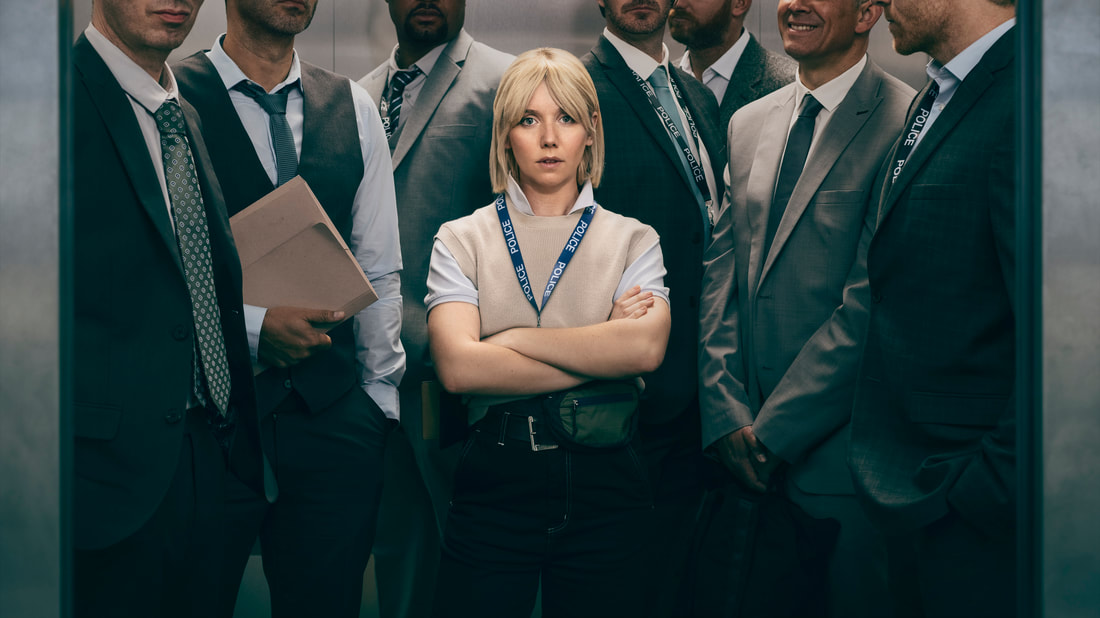
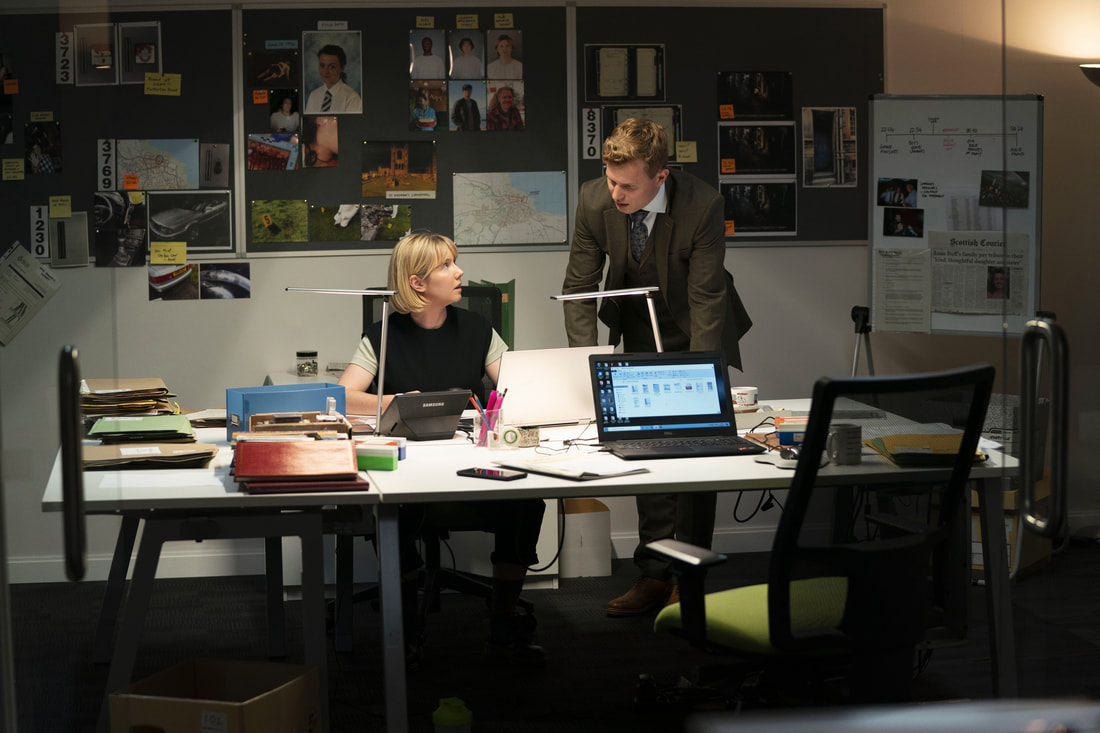
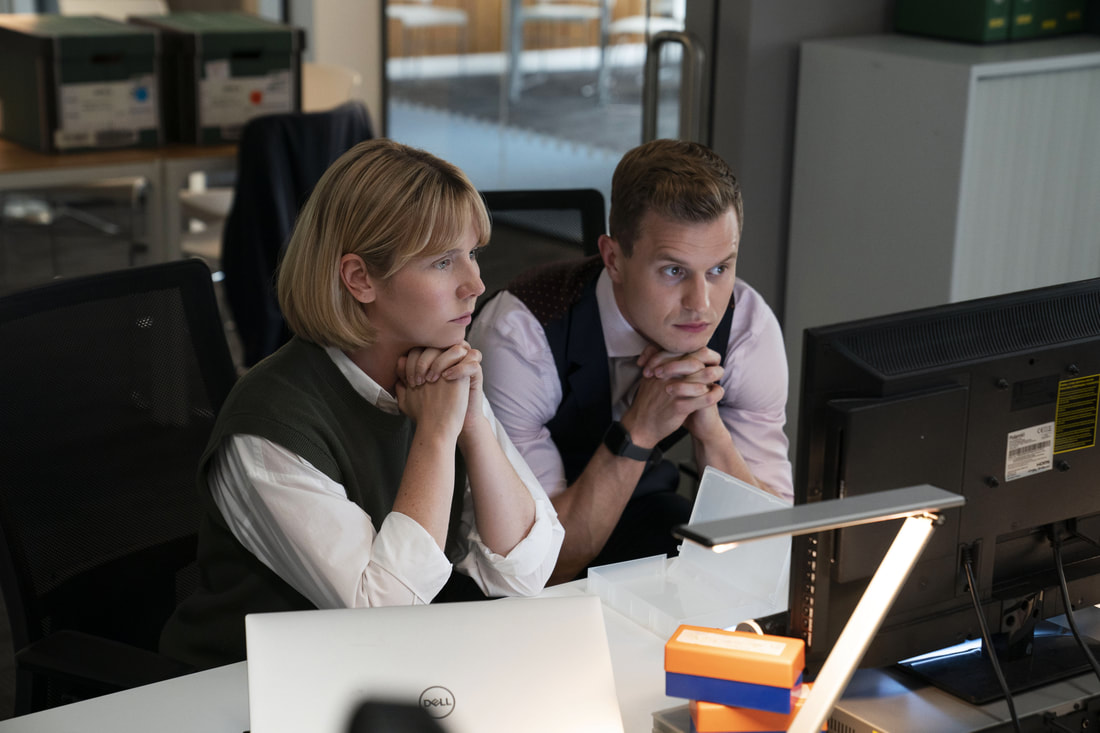
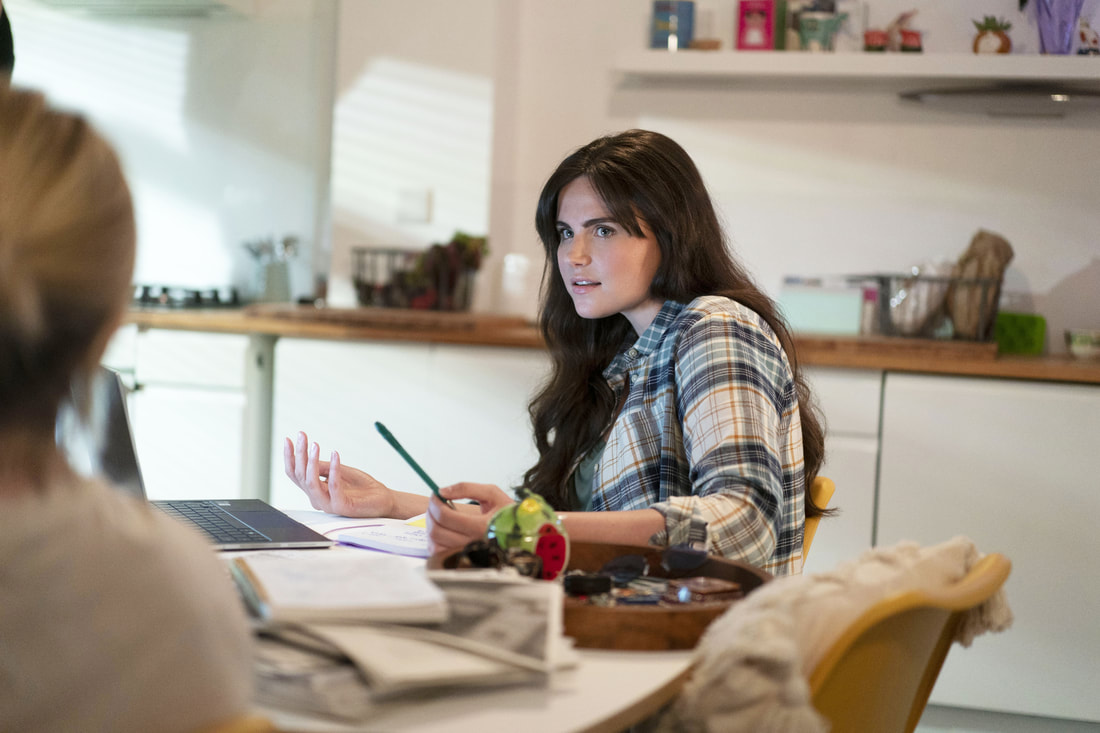
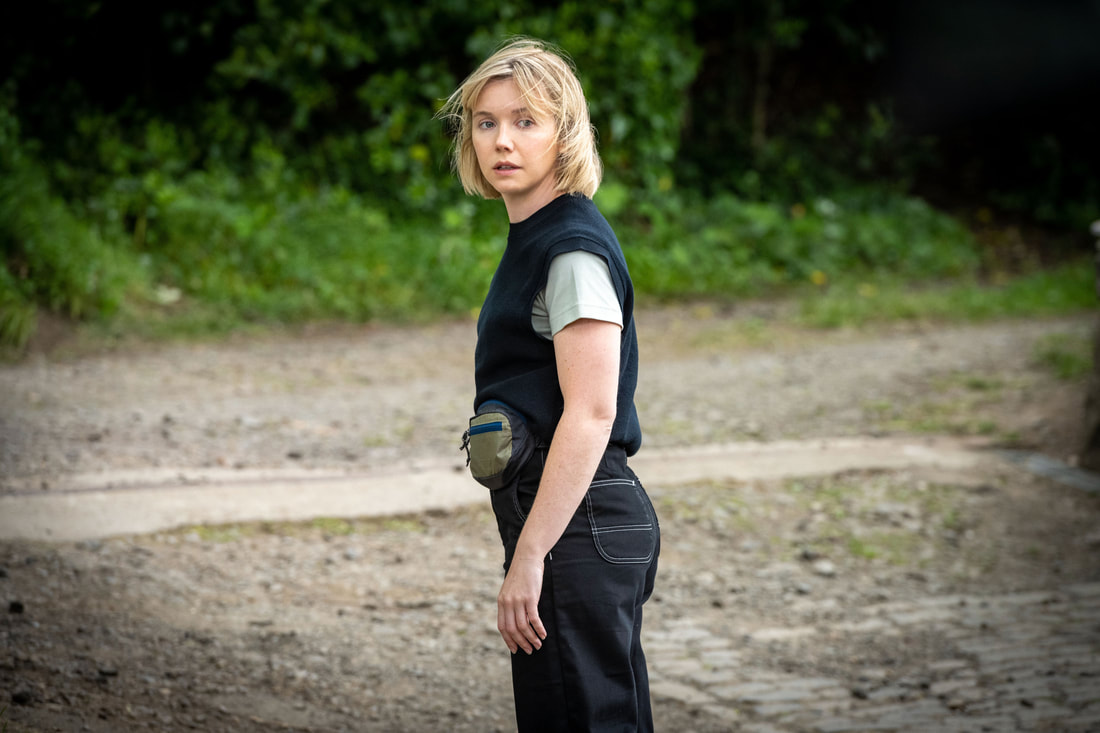
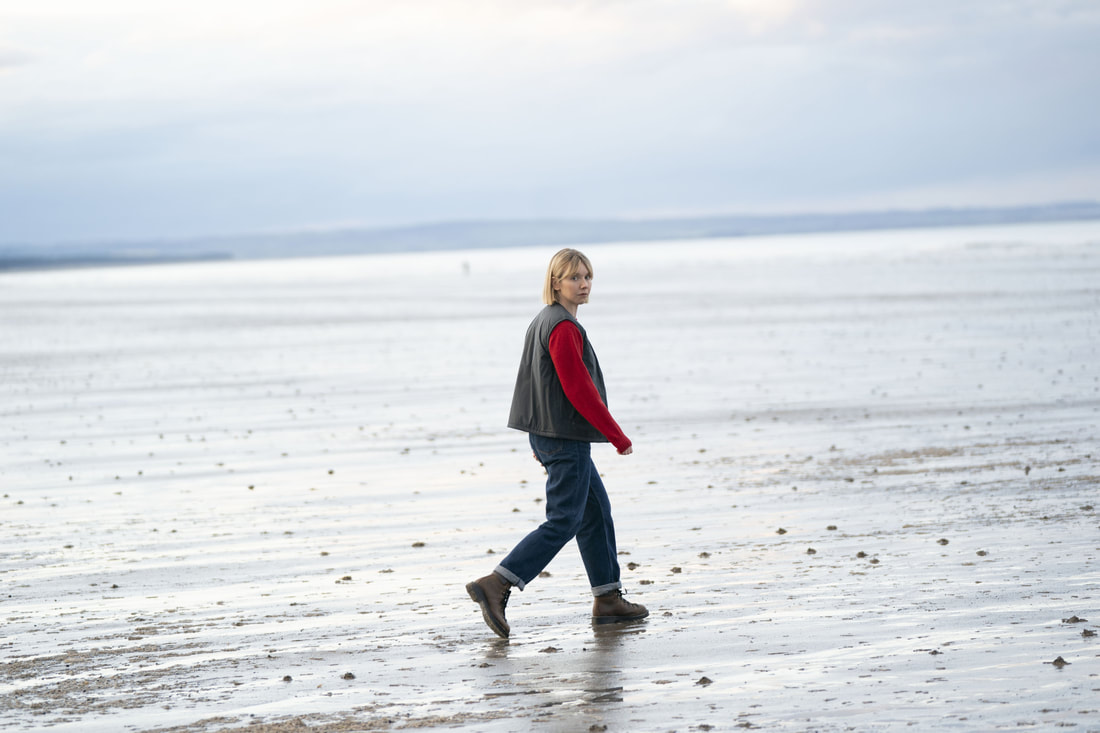
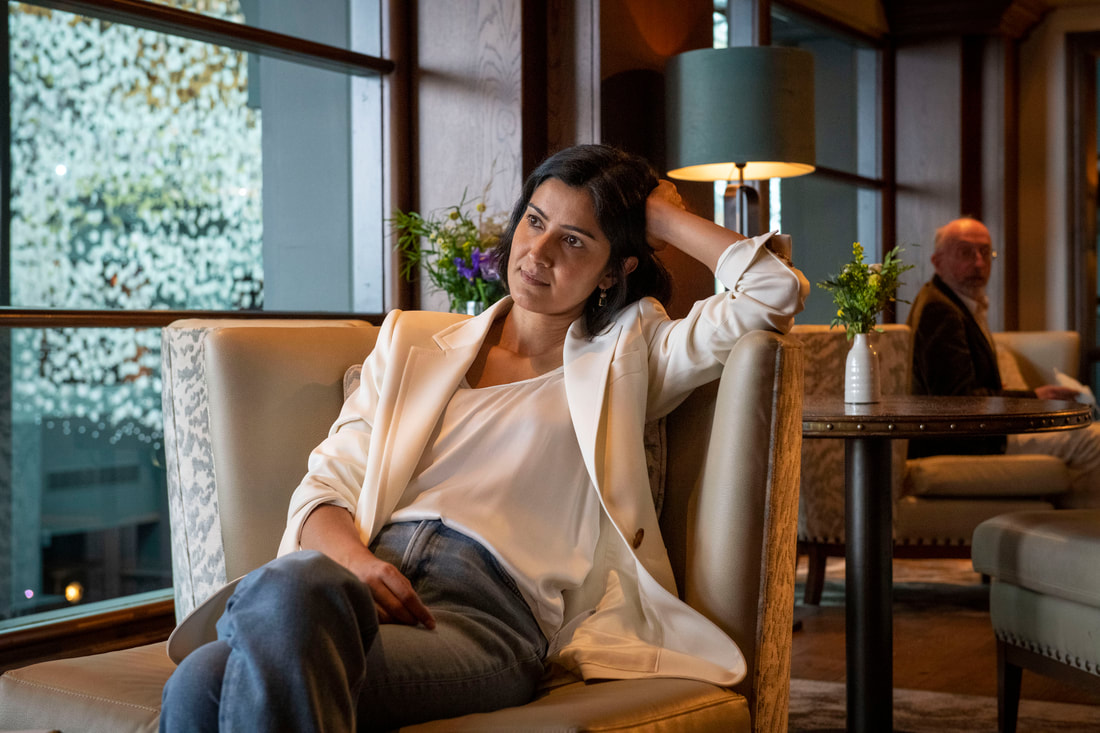
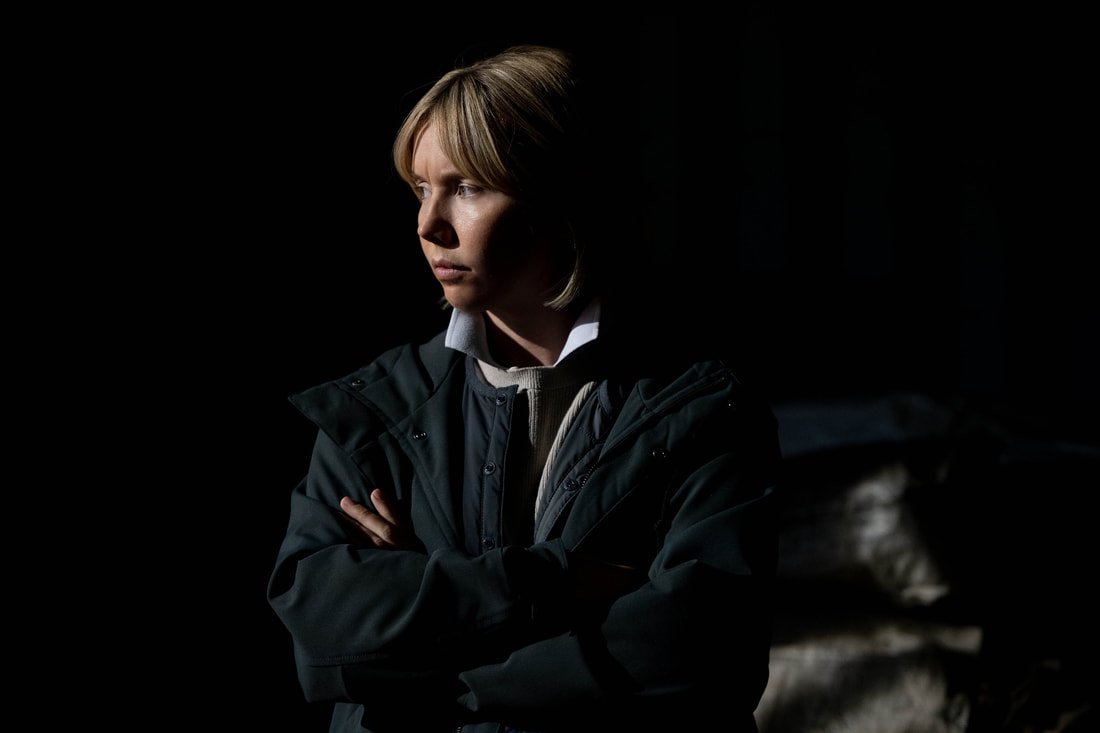
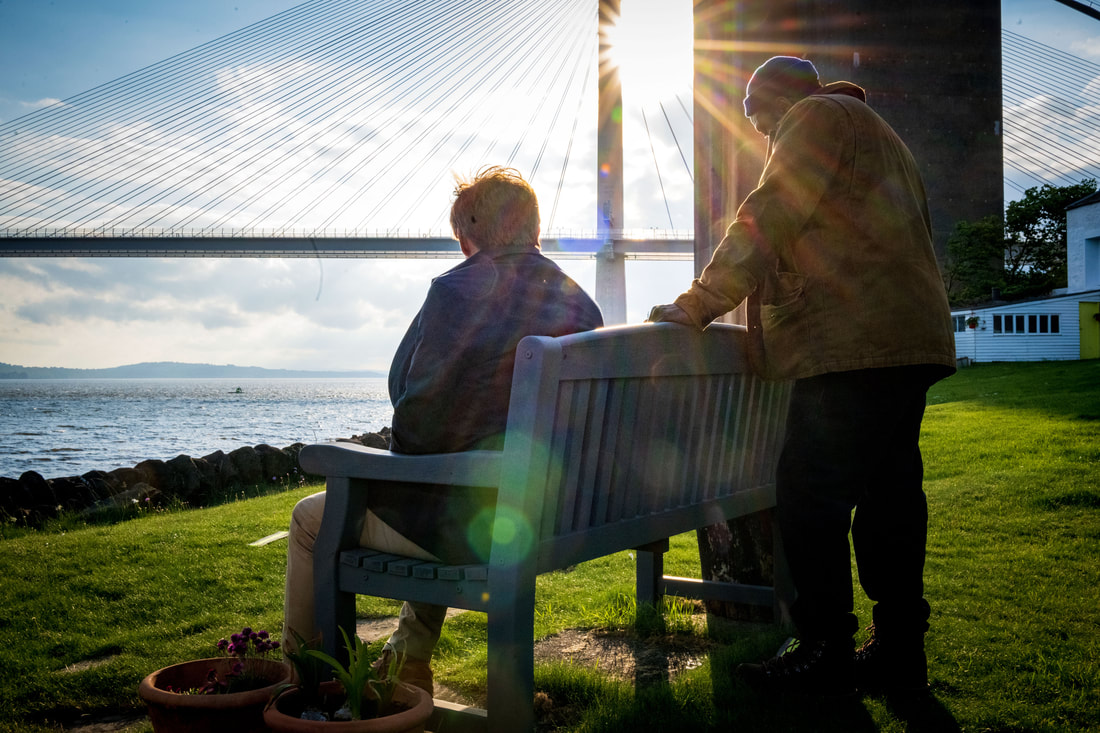
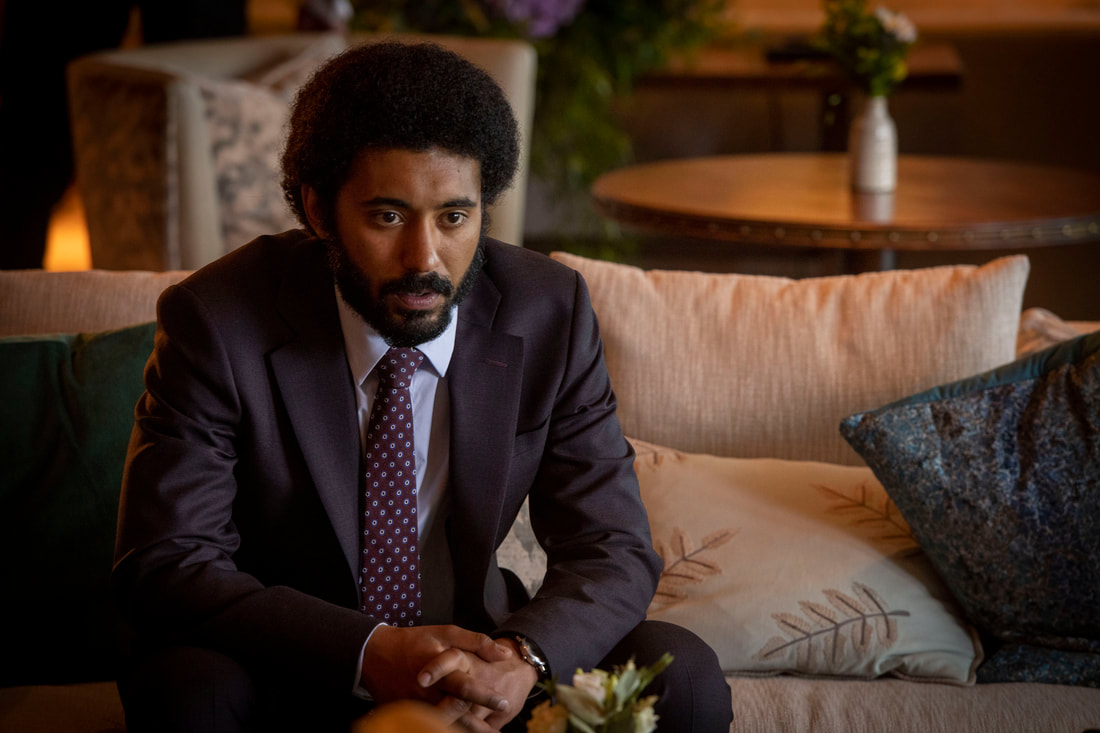
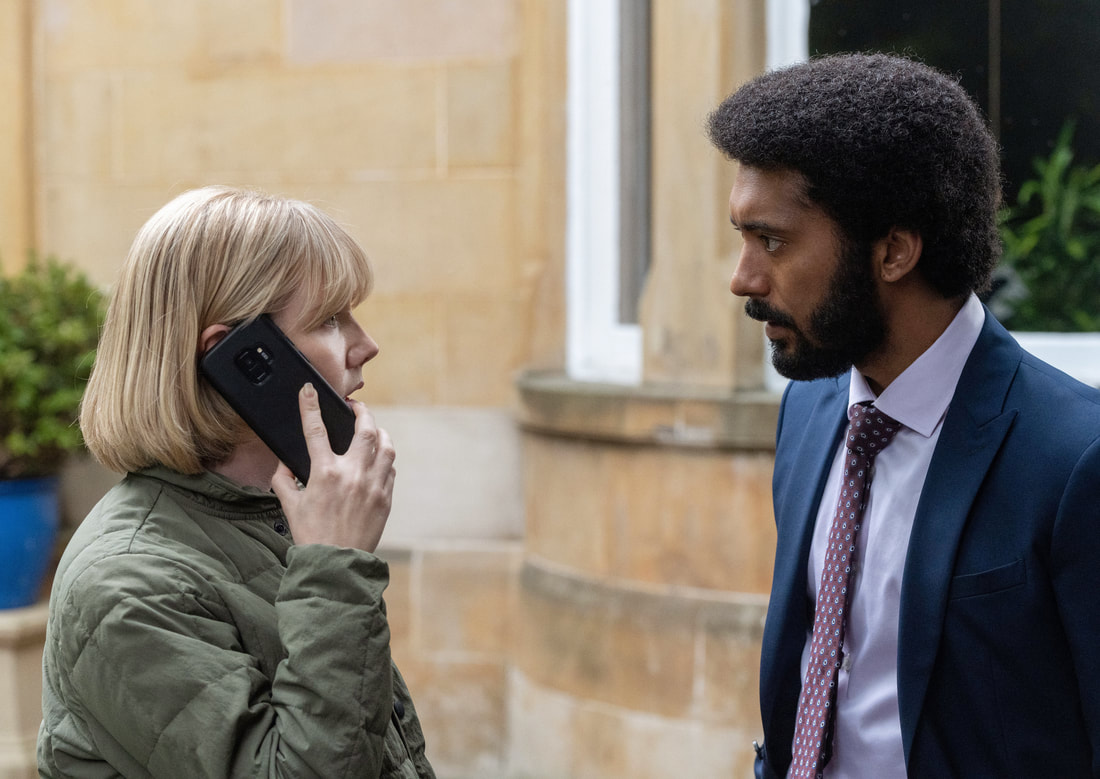
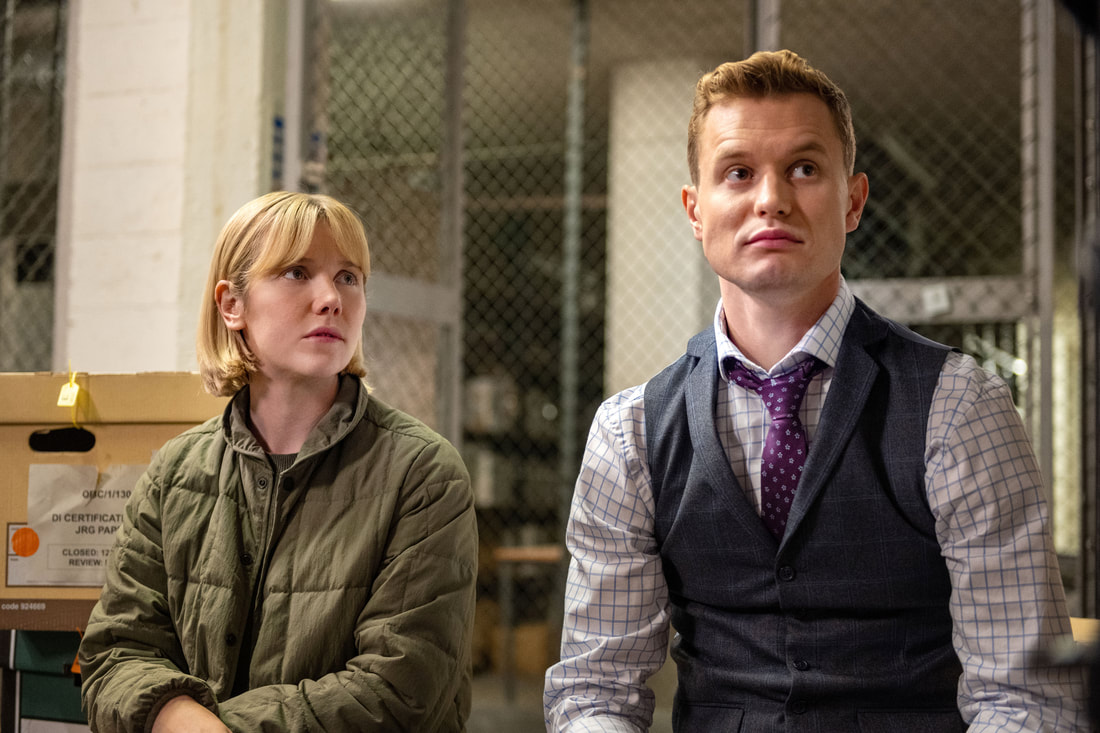
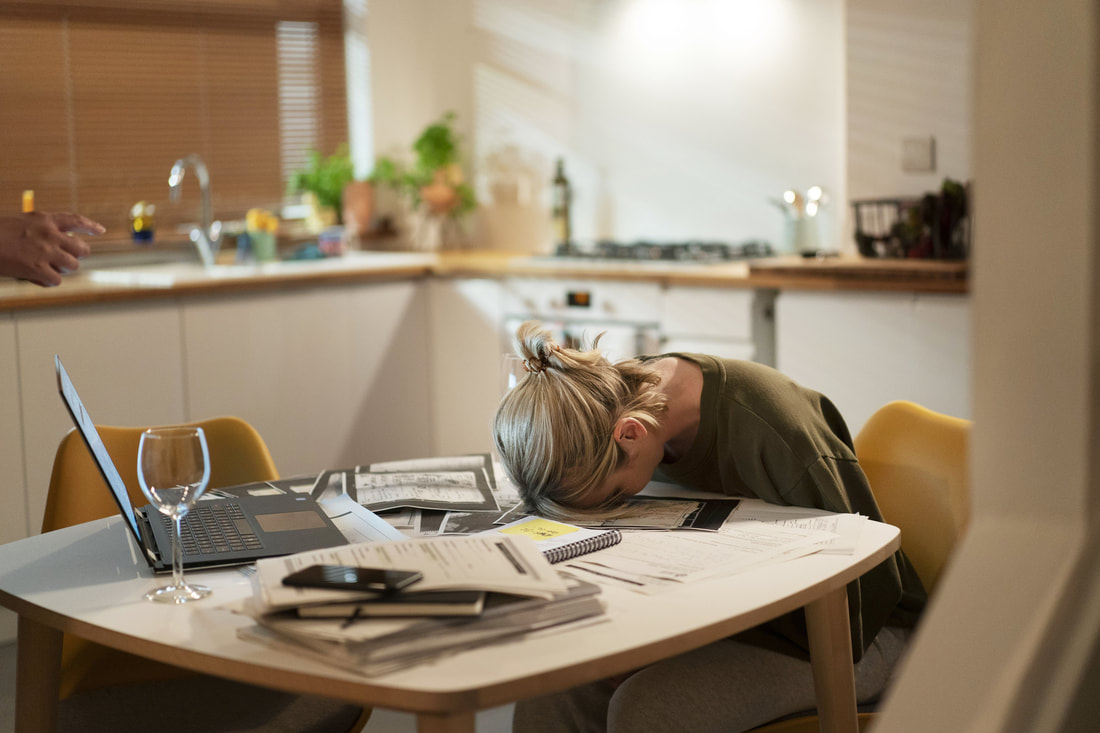
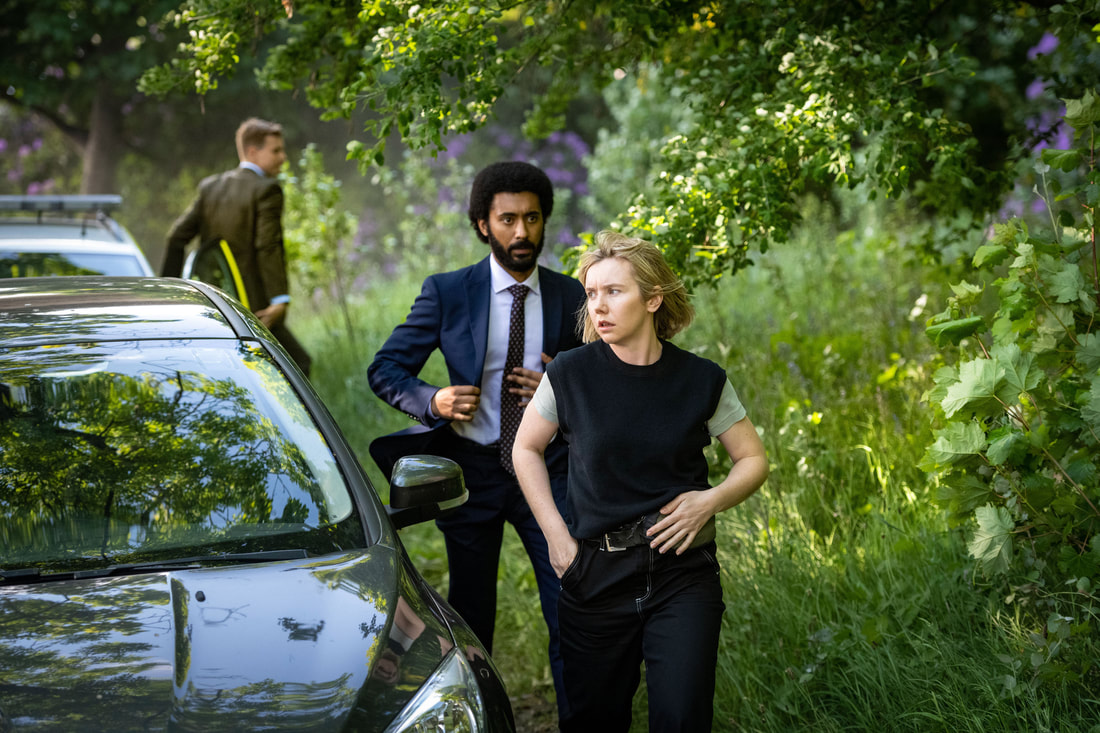
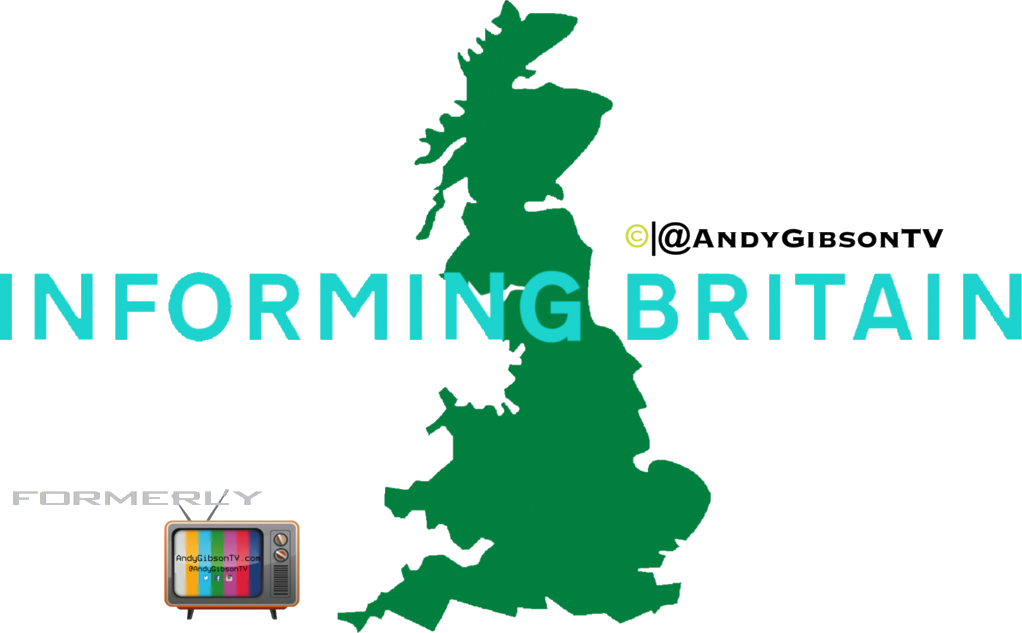
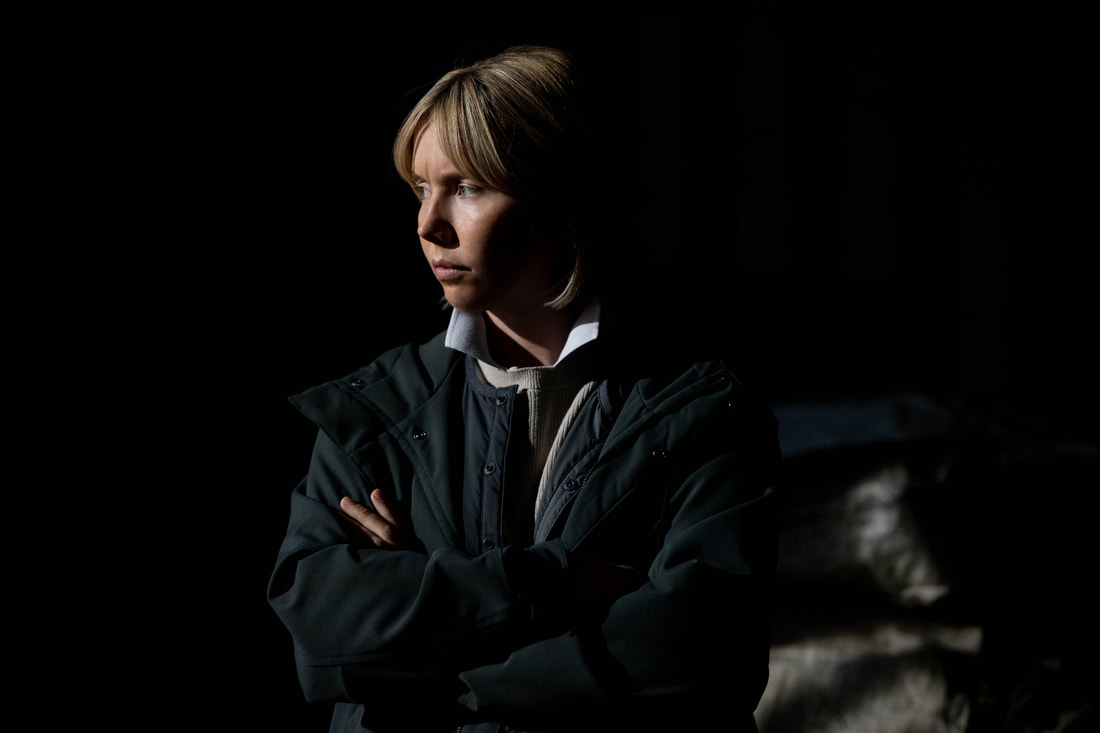
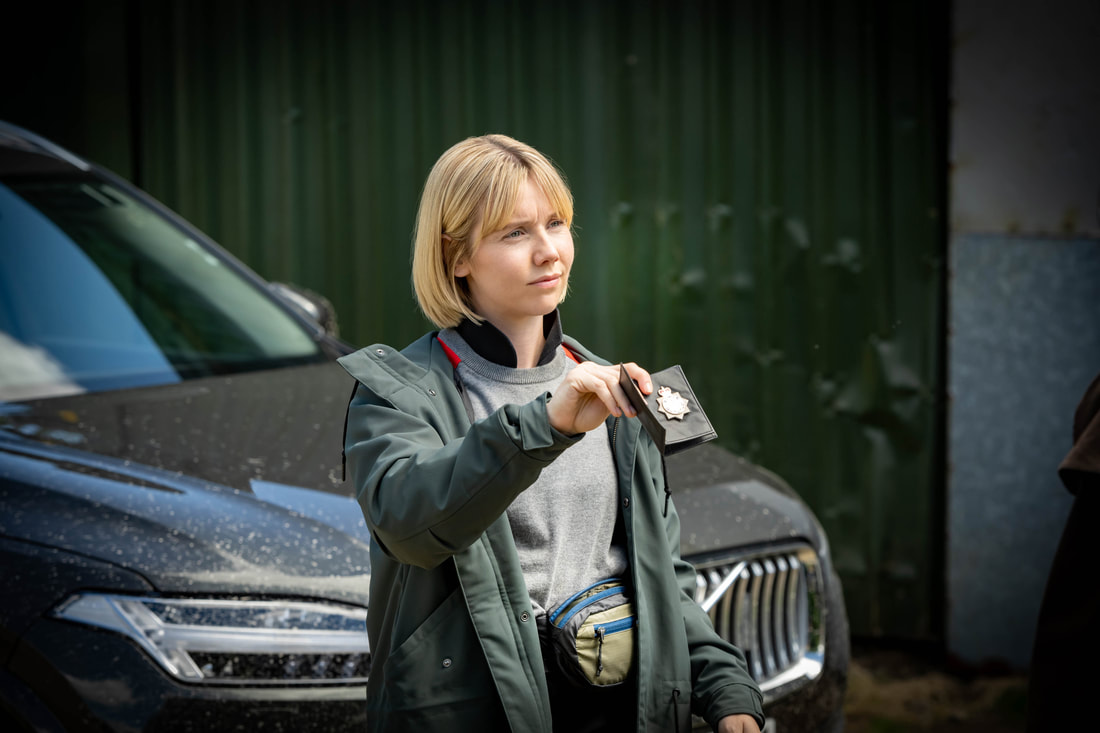
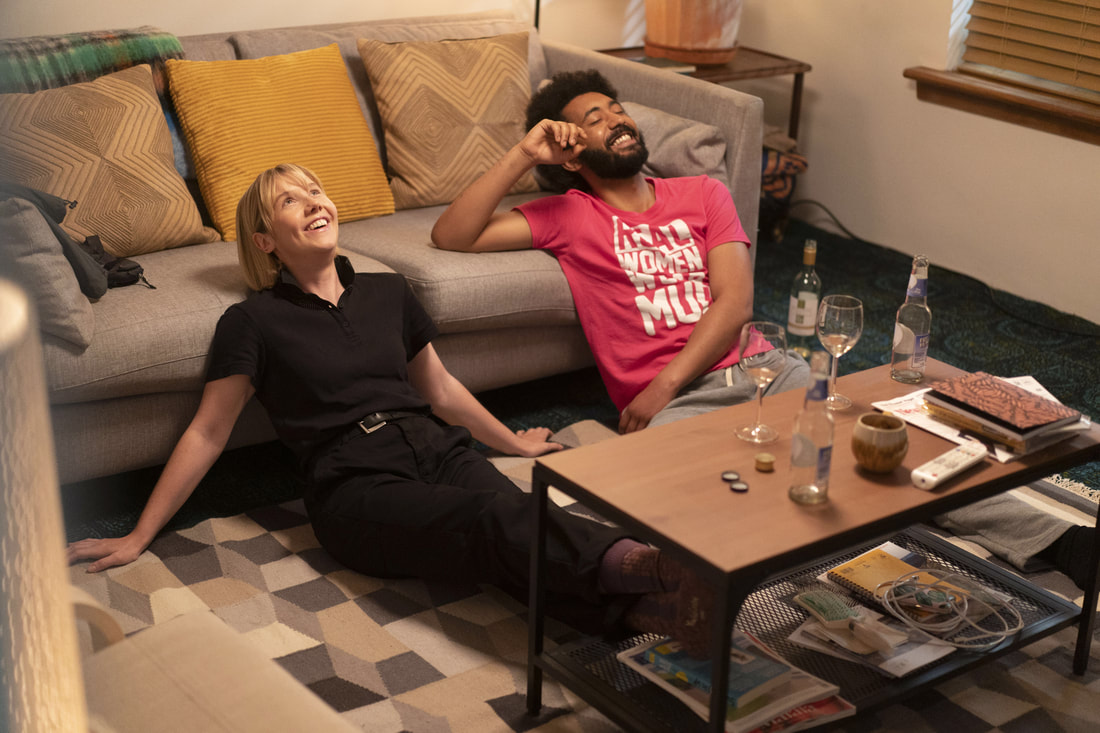
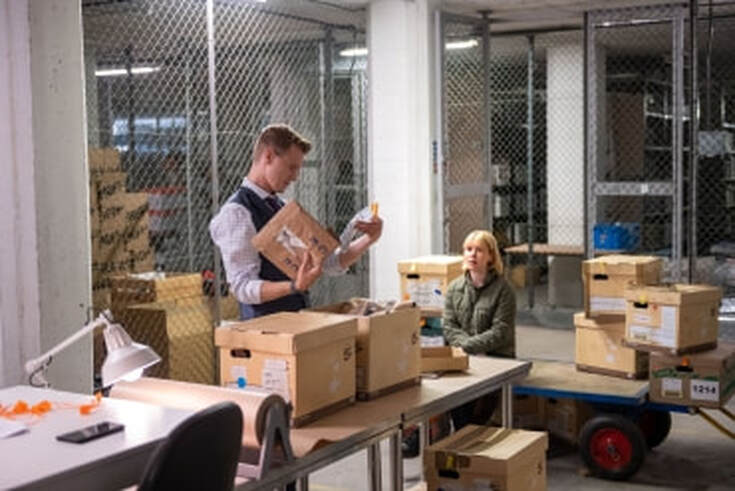
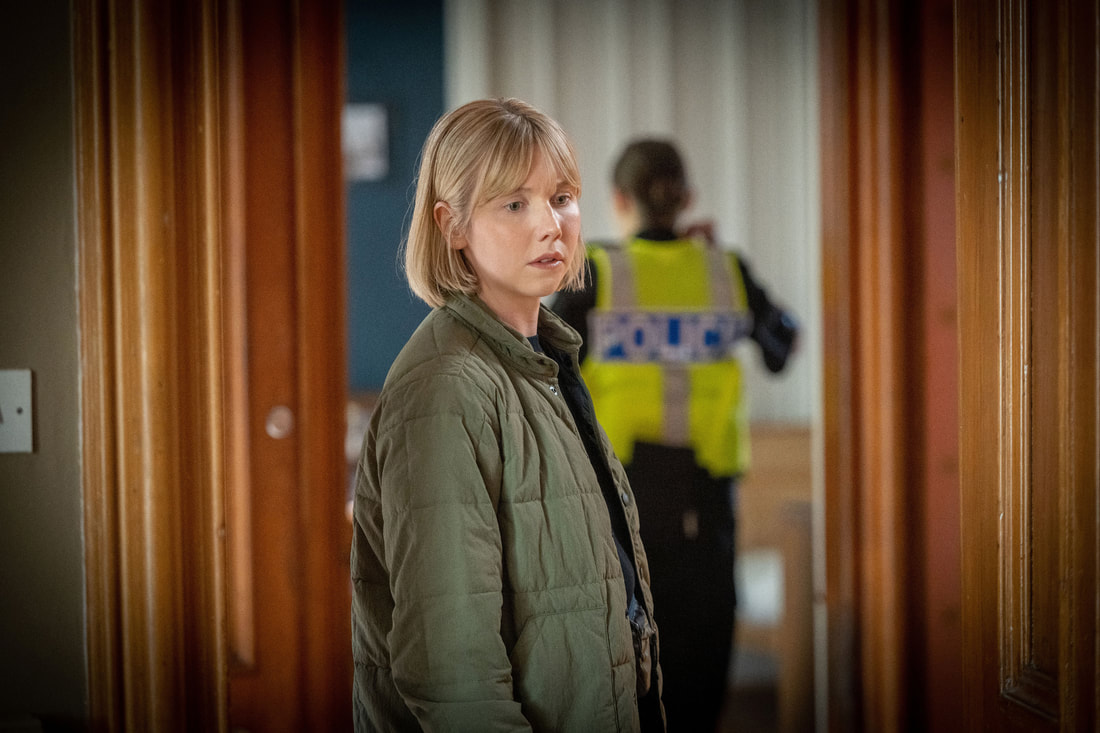
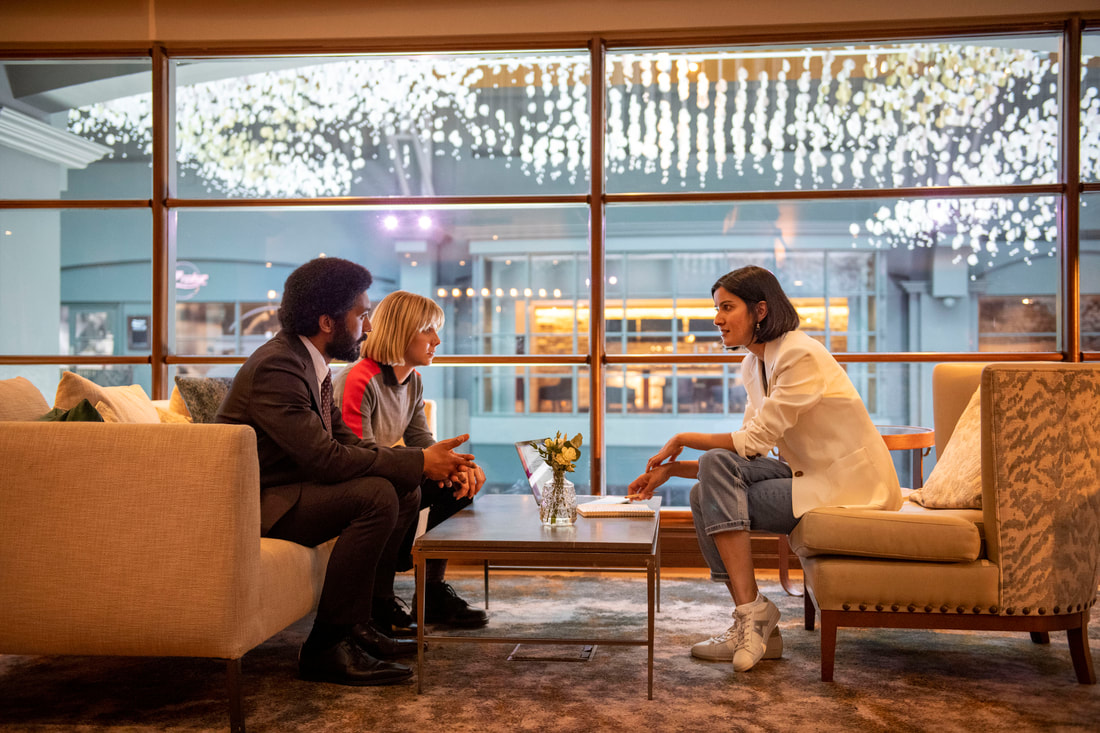
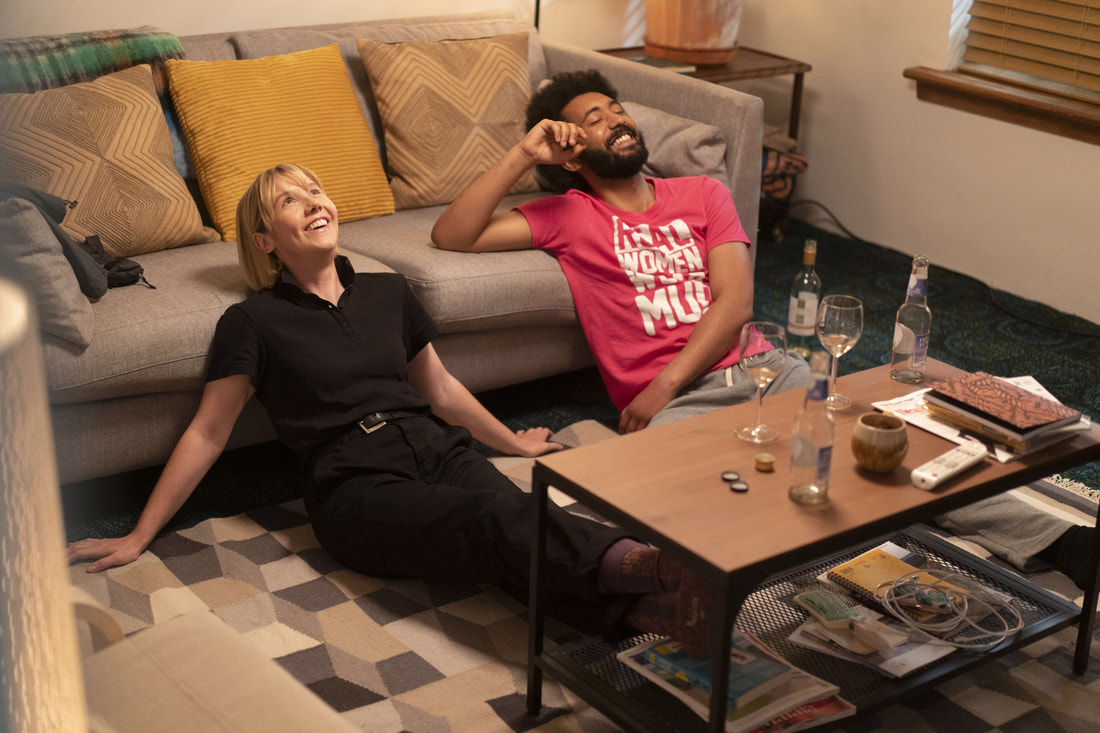
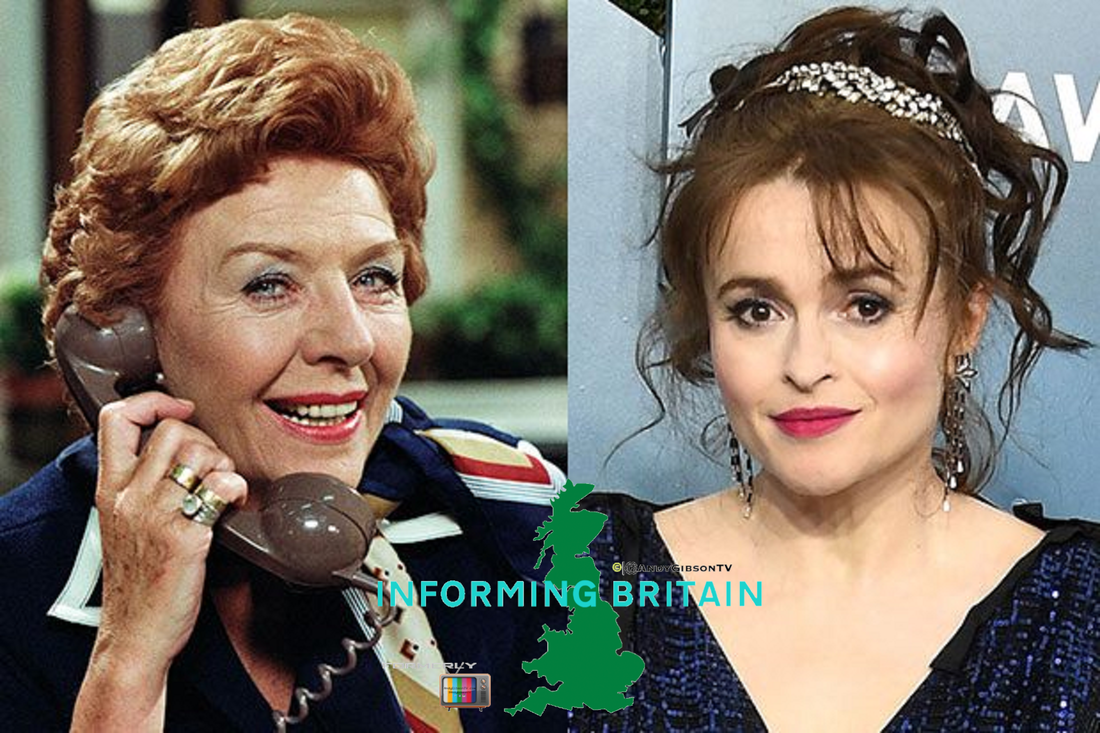
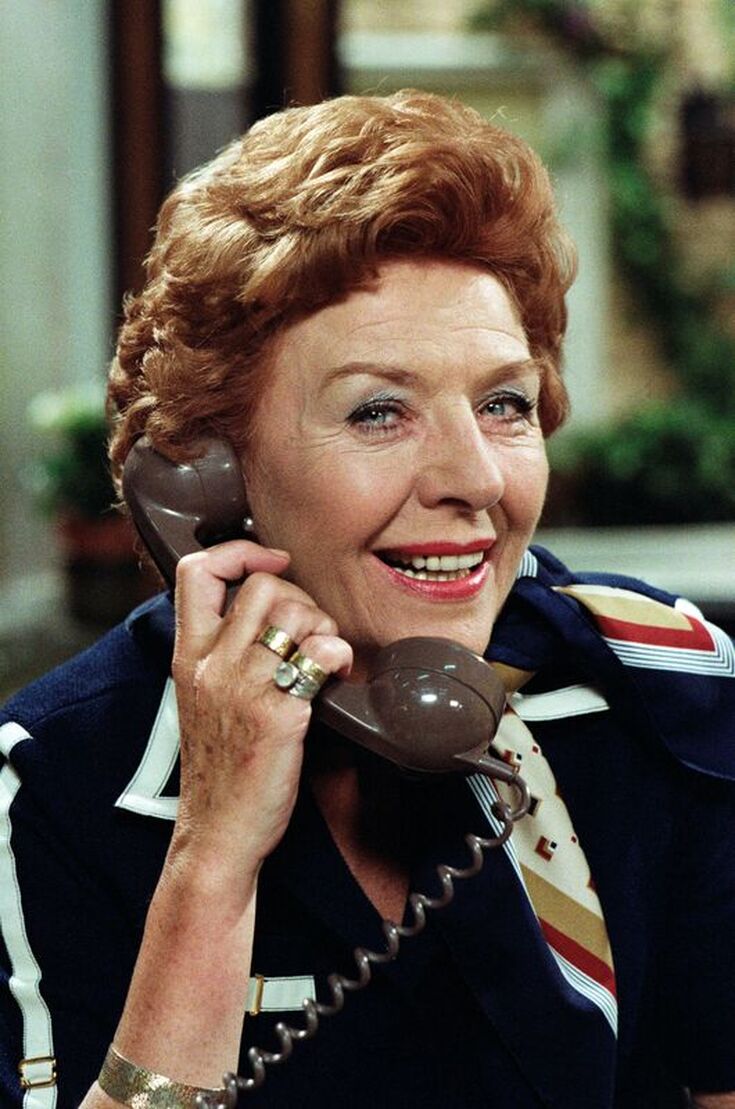
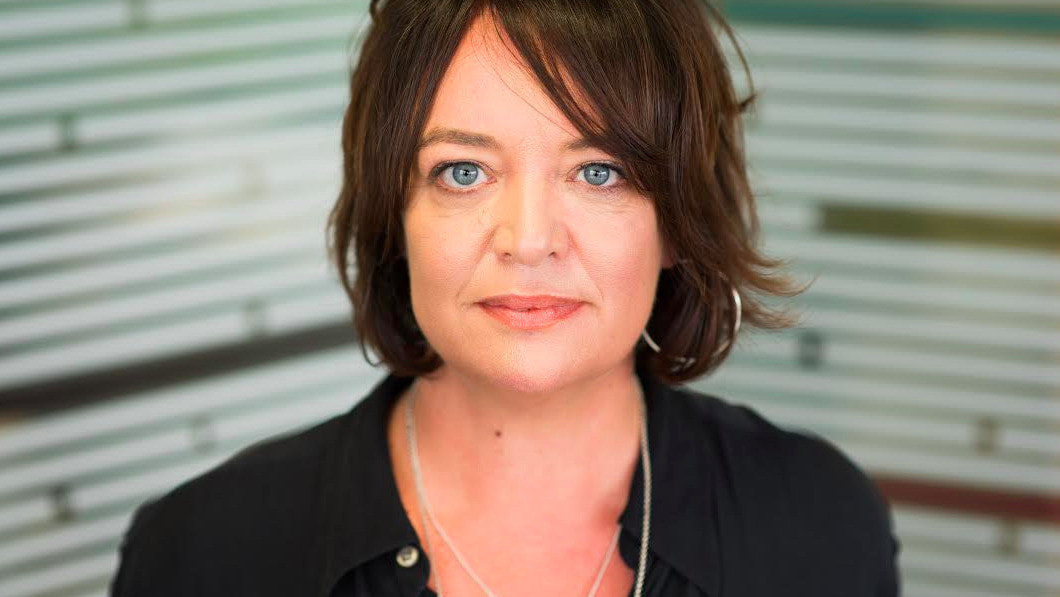
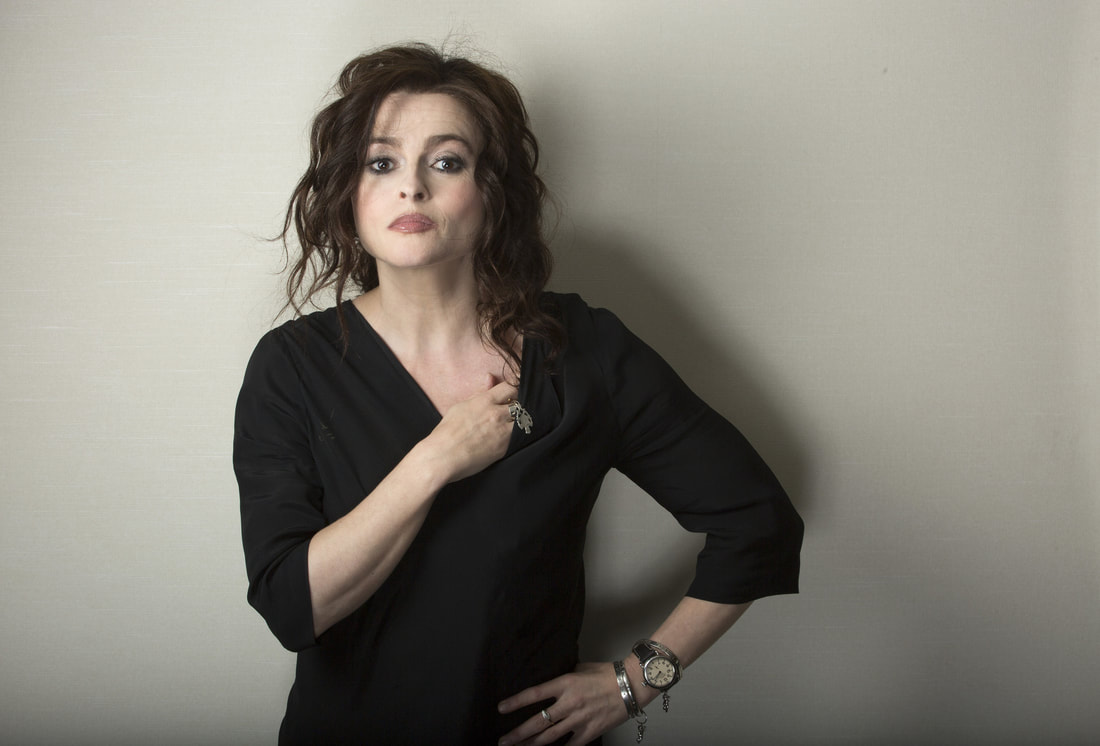
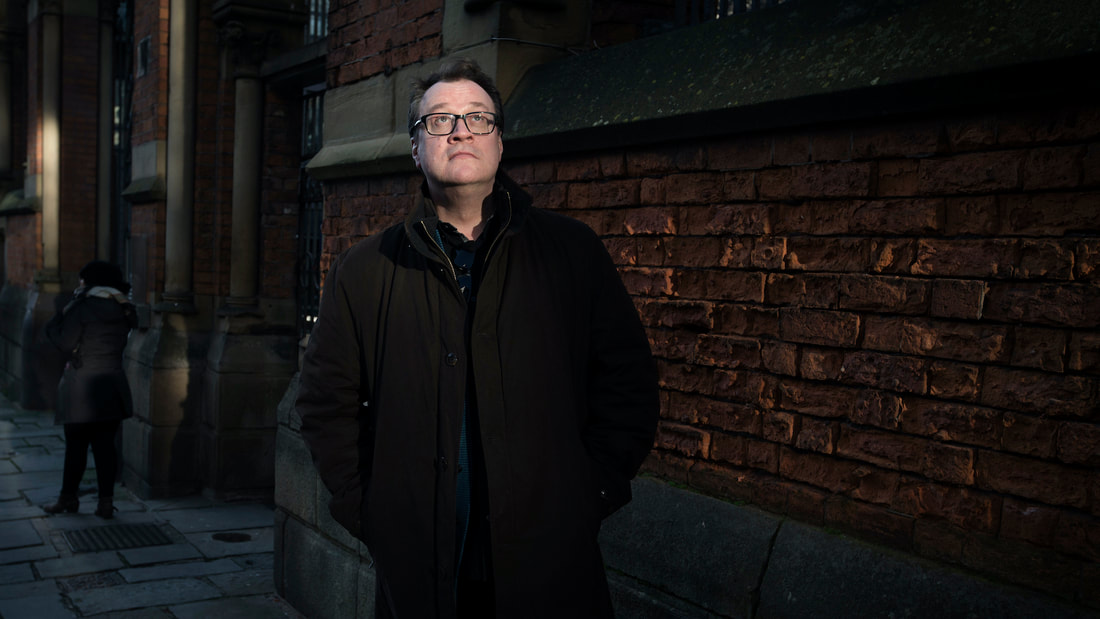
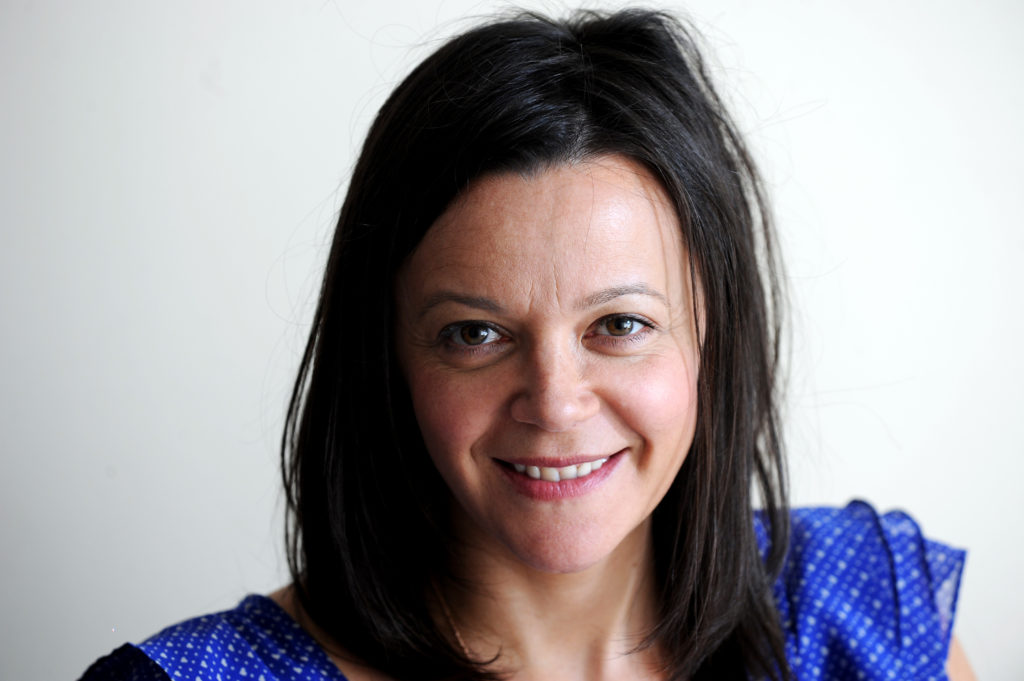
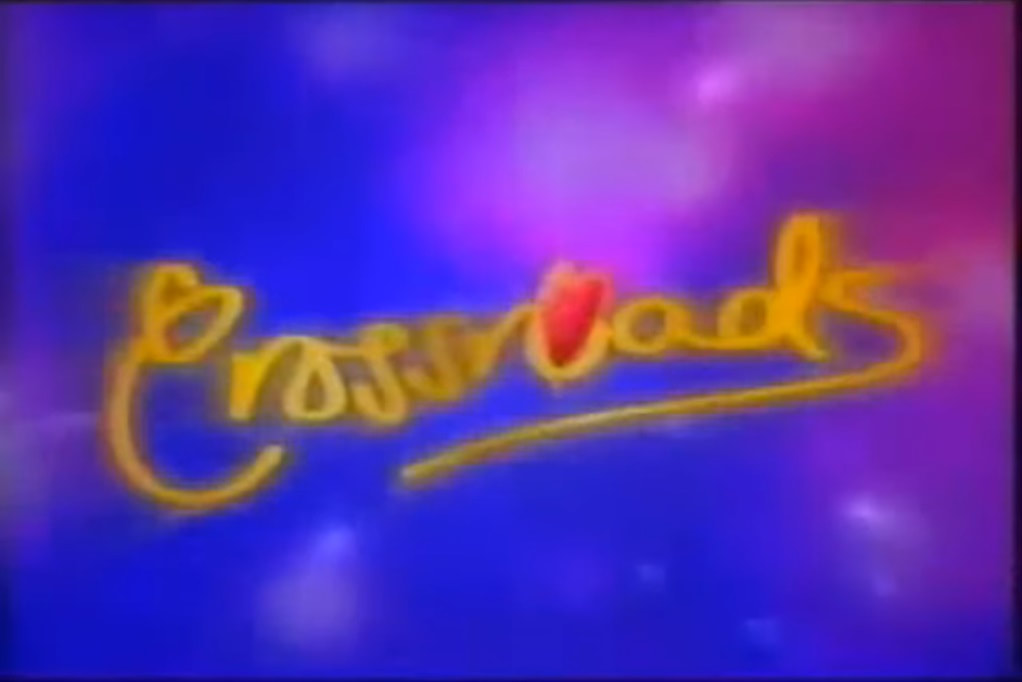
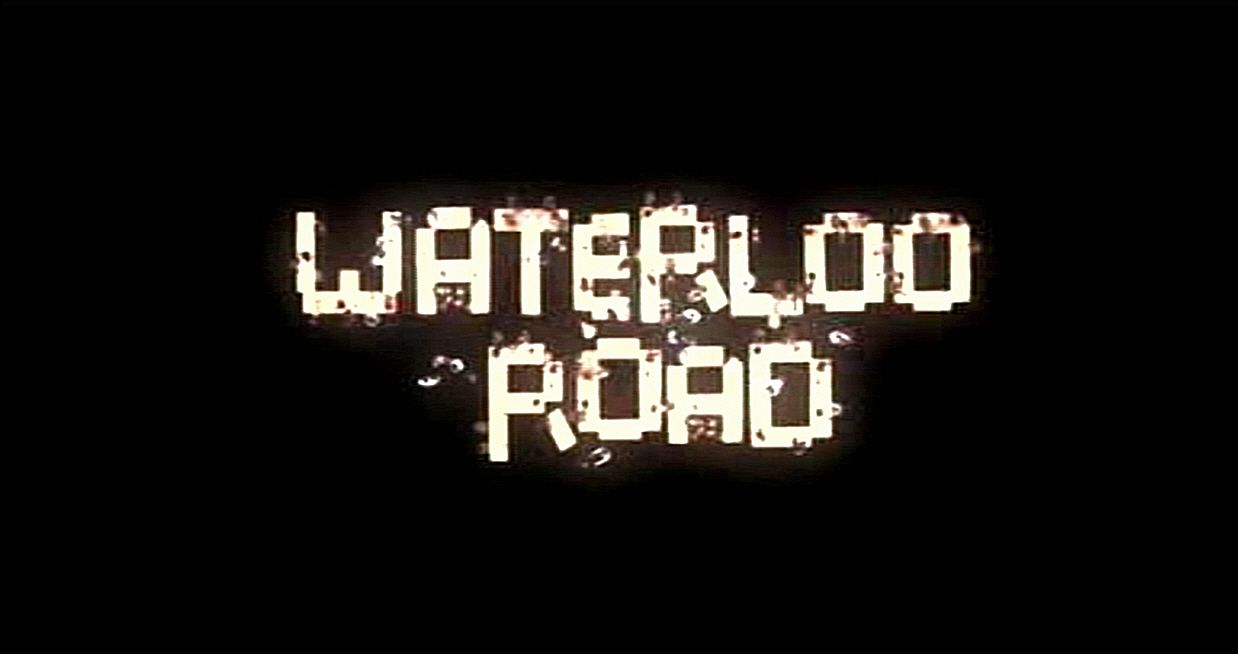
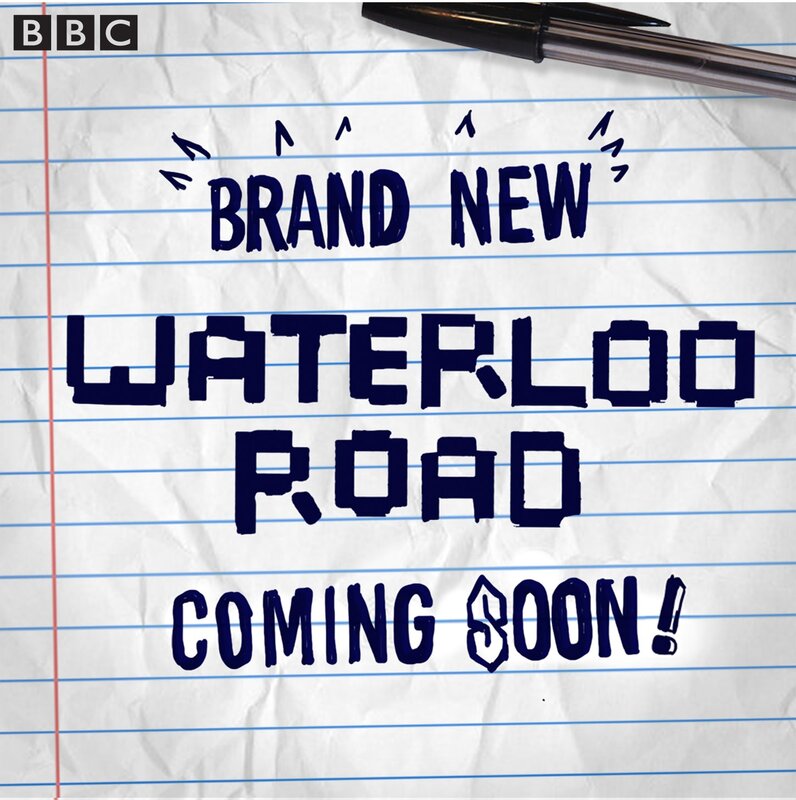
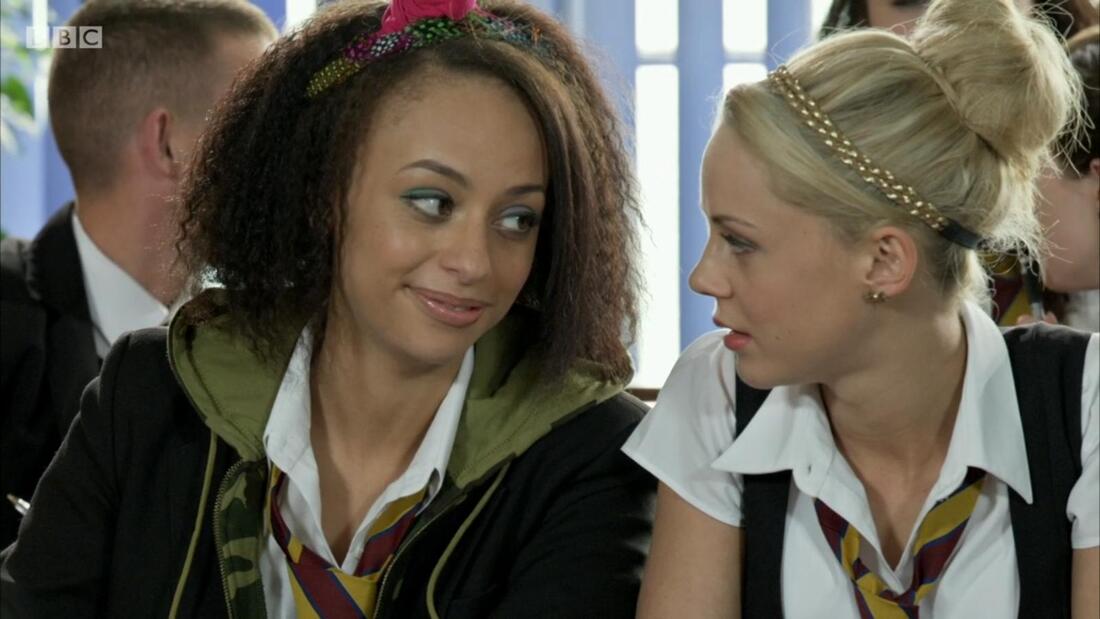
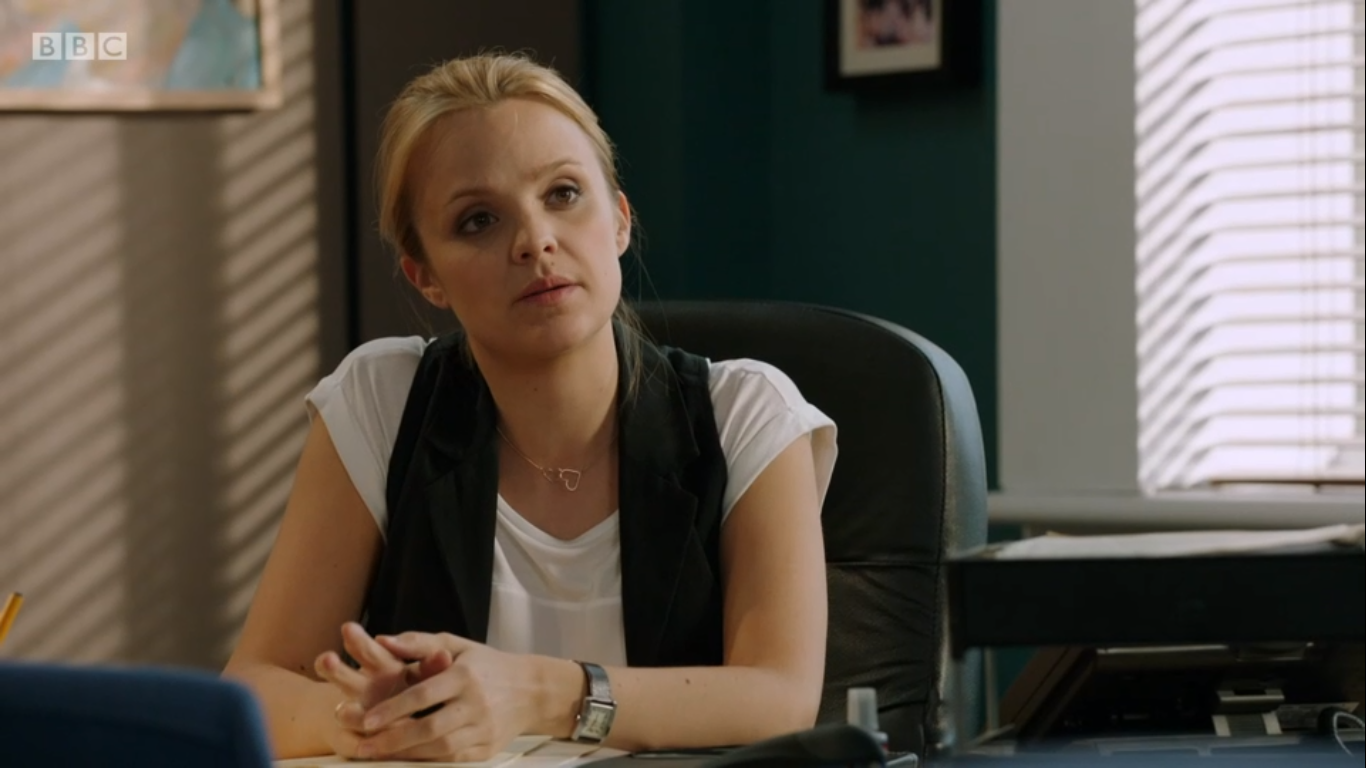
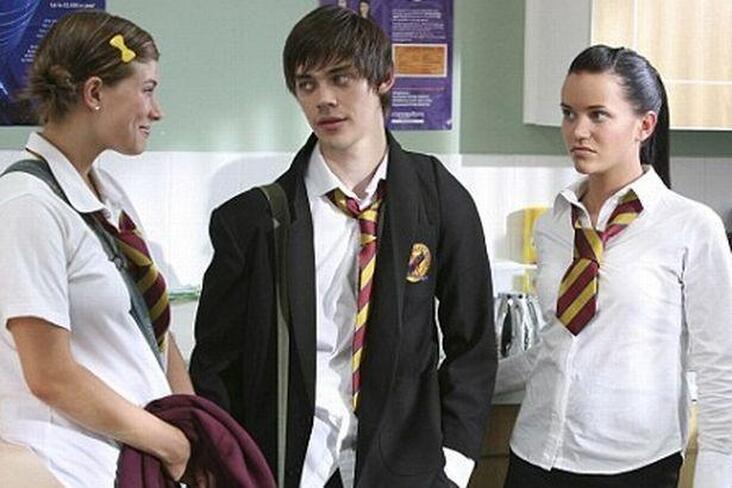
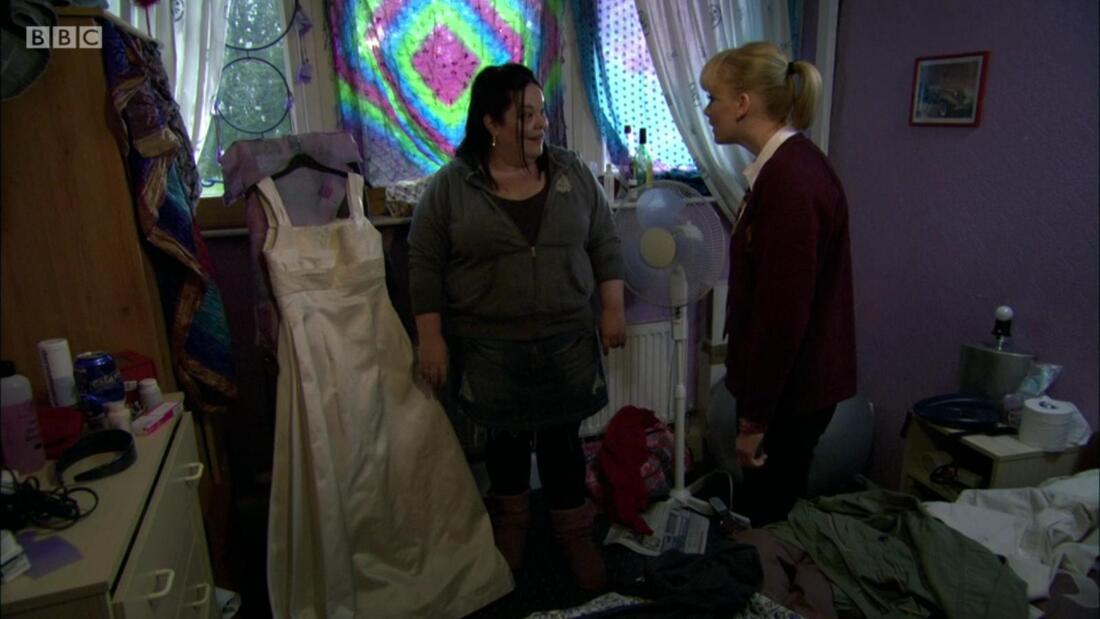
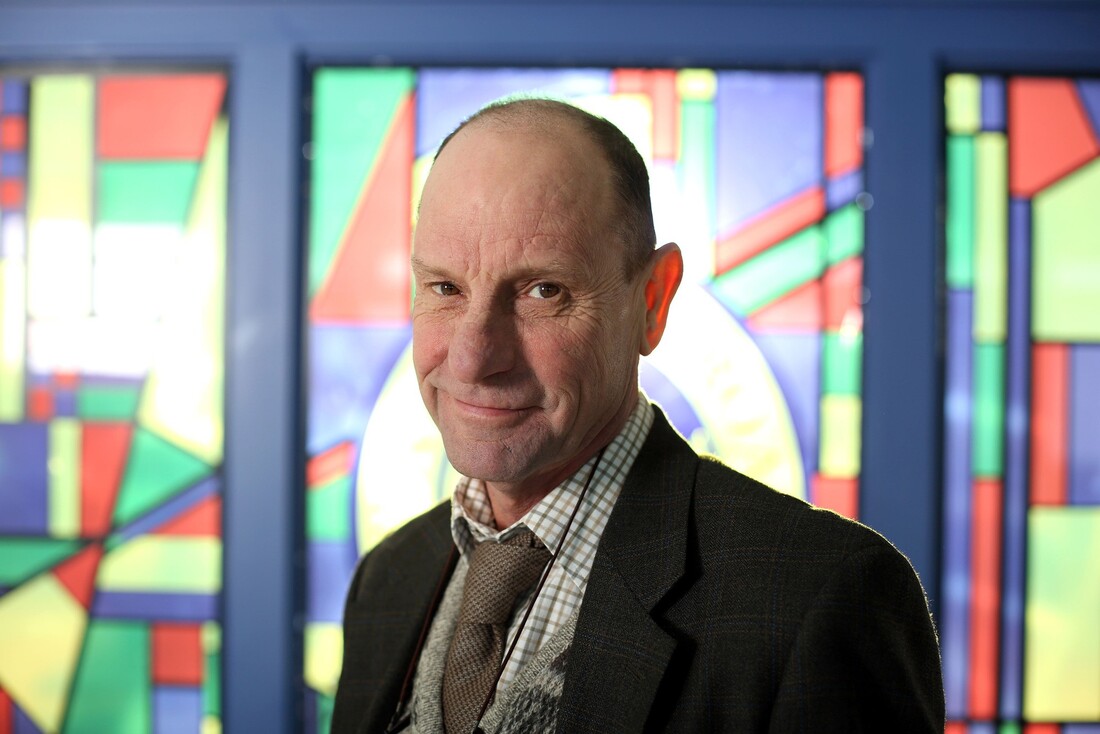
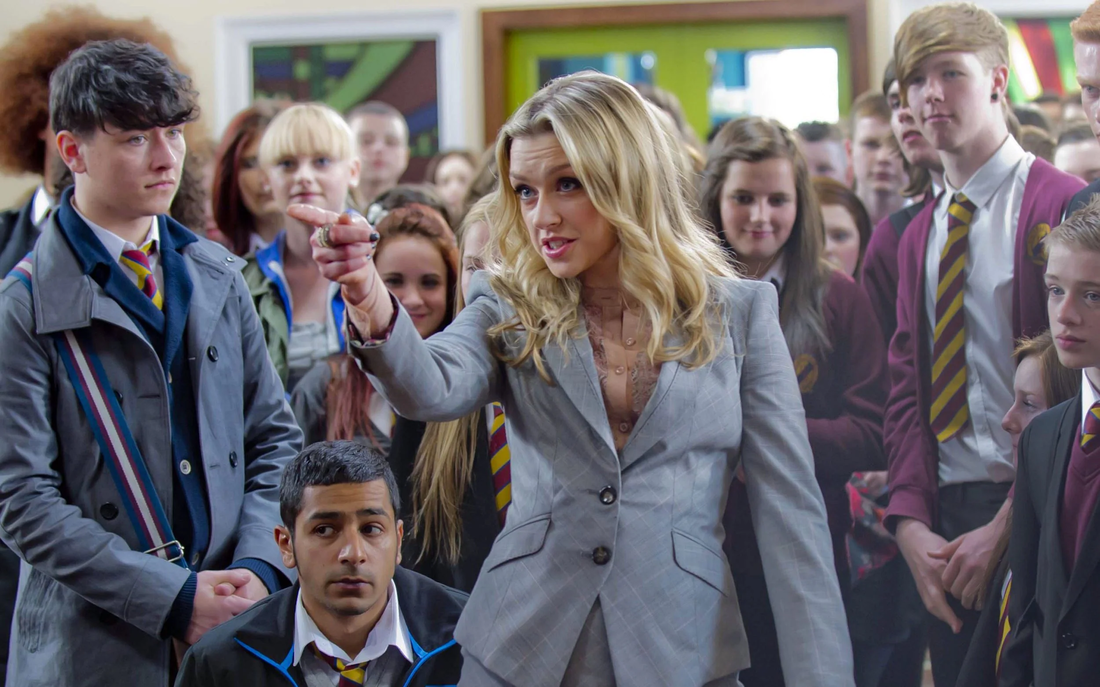
 RSS Feed
RSS Feed
